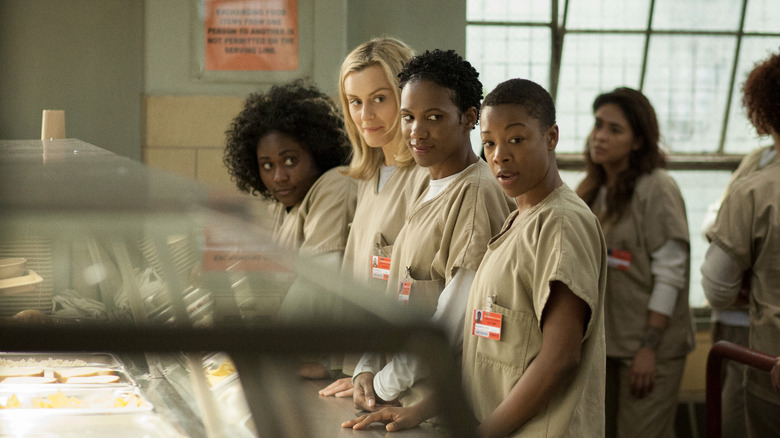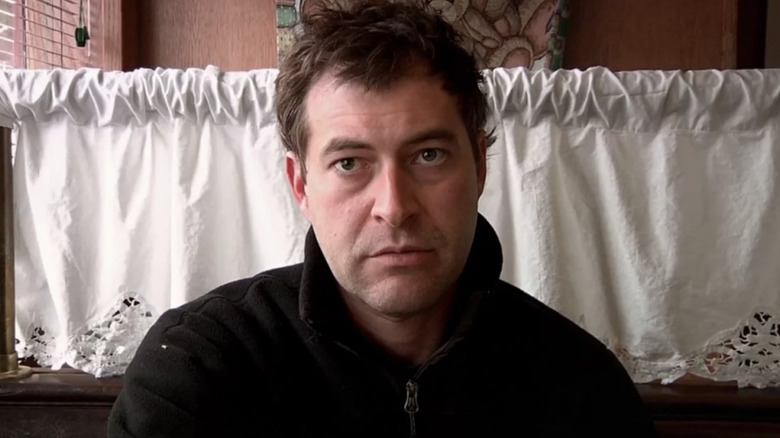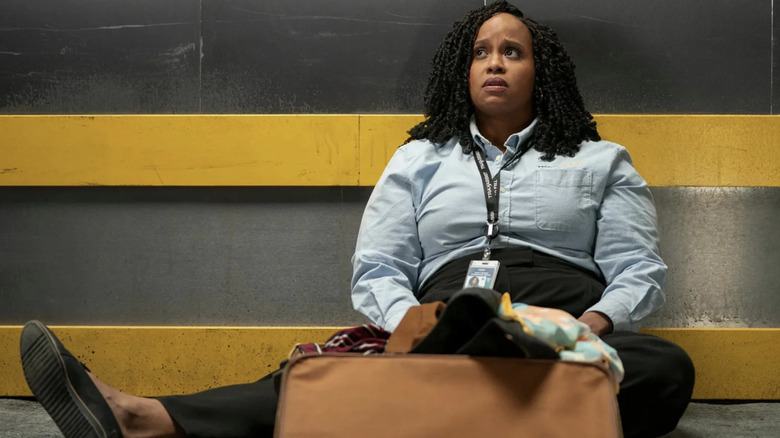The Greatest Victim Of The Streaming Wars Is The Very Thing That Started Them
In January 2007, the pioneering DVD-by-mail rental service Netflix launched a streaming media platform, introducing the idea of video on demand via an Internet connection. A the time of launch, Netflix only had 1,000 films available for streaming (compared to over 70,000 on DVD). A month later, Netflix would mail out its billionth DVD to a customer, which marked the beginning of the end. In the following years, thanks to partnerships made with studios and broadcasters like Disney, Warner Bros., Viacom, DreamWorks, The CW, and AMC, Netflix's streaming service was proving more popular than the mail subscription service that built their company.
But on February 1, 2013, a massive shift occurred when Netflix released "House of Cards," its first original, United States-produced series exclusive to the streamer. It wasn't just a riveting political drama, but one that also boasted huge Hollywood names like a yet-to-be-disgraced Kevin Spacey and Robin Wright. Netflix proved that they could do more than just obtain licenses for hit movies and TV shows, they could make them as well. The early years of Netflix Original Programming was an explosion of creativity — "Orange is the New Black," "Sense8," the Marvel TV shows, "Unbreakable Kimmy Schmidt," the start of Mike Flanagan's reign of horror, "Grace and Frankie," "One Day at a Time," and "BoJack Horseman" were absolute game changers, and Netflix was looking to distribute adventurous, creative, and original feature films.
But their success also inspired the studios and broadcasters Netflix had been acquiring the bulk of their library from to attempt to replicate the model for themselves, and The Streaming Wars began. The war has brought forth immeasurable casualties, but the biggest has undoubtedly become the dissolution of what the word "original" actually means.
The evolution from original programming to exclusive programming
Not to quote the dictionary here, but "original" as defined by the folks at Merriam-Webster is "not secondary, derivative, or imitative." Of course, all art is derivative of something, but the initial run of streaming originals was far more interested in making compelling, genuinely original films and TV shows than the current landscape of bending and bowing to the whims of data-driven "guaranteed hits" and algorithmically appealing poster art. I was recently privileged enough to catch an early screening of "The Creep Tapes," (coming soon to Shudder) the series expansion of the "Creep" films, originally distributed internationally by Netflix, with franchise creators Mark Duplass and Patrick Brice in attendance. At one point, Duplass talked about how much making the "Creep" films meant to him because they were an outlet for him to take truly original creative swings and lamented that 2014 now feels like a totally different lifetime. It's depressing to admit, but he's right.
The Streaming Wars really picked up steam in 2019 with the launch of Disney+, forcing all of the streamers to vie for subscribers, talent, and projects. Whoever said "a free market encourages competition" was a fool, because the result of said competition was that studios and streamers became more risk averse, less likely to push boundaries, and more reliant on familiar IP. The Max streaming app is looking to already reboot the "Harry Potter" franchise with a series that will take over 10 years to complete, studios have become dependent on franchise blockbusters with irresponsibly inflated budgets, and last year /Film writer Rafael Motamayor pointed out the growing trend of "The Brand Movie." As he wrote, "Besides, who cares about people anyway? Not Hollywood, apparently, because they have finally recognized that the audience's huge interest in recognizable IP and nostalgia means they don't care about people or characters, they care about products." And considering how many people "wait for movies to hit streaming" instead of going out to catch a new flick in a movie theater, The Streaming Wars have infiltrated the landscape of theatrical releases.
Where are independently produced films without a flashy A-lister to headline the trailer supposed to go? What do we do with genuinely original stories that can't be proven by "data" to be a hit because it's never been done before? It used to be that these were the kinds of stories that streamers fought to give a home but now ... original doesn't mean original, it just means "exclusive."
It's time to push back against the streaming landscape
Make no mistake, there are plenty of great films and TV shows still coming out as exclusives to streamers (I will not rest until everyone is watching "How To Die Alone" on Hulu), but in speaking with a handful of filmmakers (who have requested to remain anonymous for obvious reasons), they've all agreed that when it comes to pitching to streamers, if it's not something that could be related to an IP or runs the risk of rocking the boat, they don't waste their time. So what do we do? What can we as consumers do to help turn the tide?
A few years ago, I wrote about the trend of fans begging studios to #ReleaseThe___Cut and why giving in to the loudest voices isn't always a good thing, because a lot of very loud people can also be very wrong! But the thing is ... I recognize that this strategy works. Studios and streamers are terrified of a PR nightmare above just about anything, which is why there was a report in October of 2024 about studios developing "superfan focus groups" to learn how to "avoid provoking fandoms in the first place." Make no mistake, this is grotesquely bending to the whims of the absolute worst people in the universe, but it's proof positive that studios and streamers are TERRIFIED of their audiences.
It's time to fight fire with fire. It's time to push back against "original" meaning "exclusive." It's time to stop accepting the slop they toss at us and expect us to consume like obedient little piggies. It's time to demand original stories and creative swings, and take a page out of the loudmouth jerkwads who have completely screwed up the industry by making those in charge of the magic greenlight think that playing it safe is the key to success. When they go low, we need to meet them at their level and then drag them to hell.
Netflix Original, Max Exclusive, Peacock Original, and Only on Paramount+ deserve to be a sign of quality and a genuine mark of originality. Otherwise, what are we even doing here?


